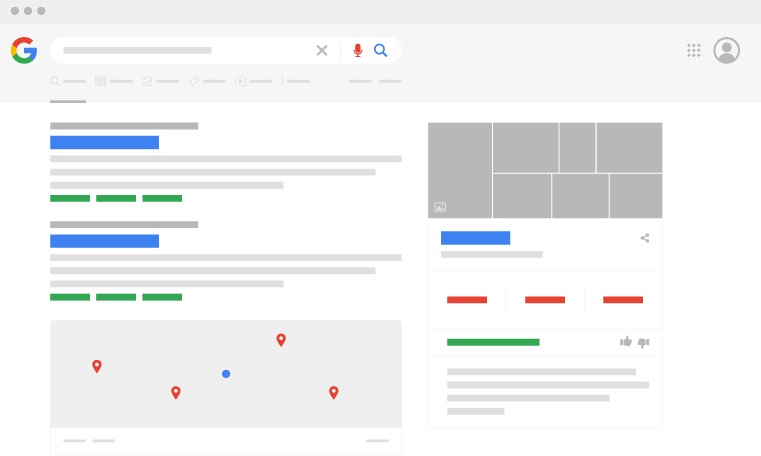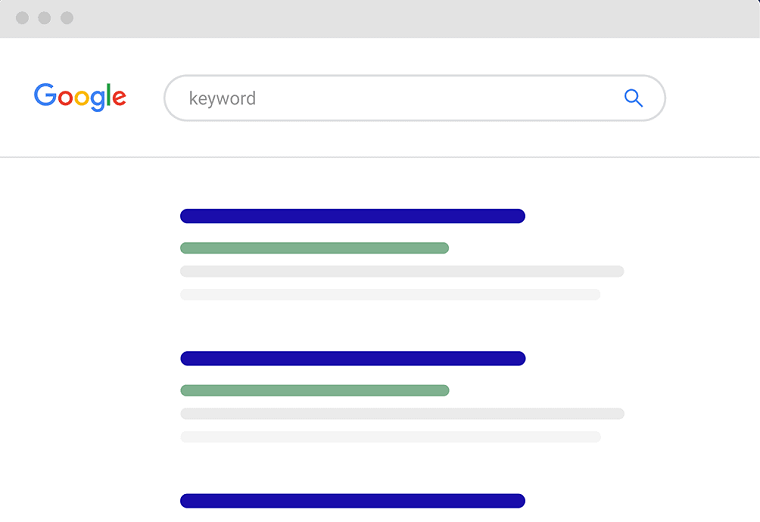Web scraping refers to the process of obtaining data from websites on the internet with the aid of automated tools. Web scraping is used for a wide variety of tasks including SERP monitoring. Let’s learn more about SERPs and why SERP monitoring is vital for a solid SEO strategy.
What are SERPs?
A search engine result page (SERP) is the page you see after entering a query into a search engine such as Google. These pages usually contain paid search ads as well as organic results. Typically, only about ten organic results are returned on the first page.

Search engines have become more adept at understanding user queries, and they’re constantly being equipped with additional features. These include featured snippets, knowledge cards, knowledge panels, site links, rich snippets, and image packs.
Knowledge cards feature a short, straightforward answer to a question. For example, if you type in a query about the distance between the earth and the moon, you’ll get a knowledge card with the exact length. This feature can be a time-saver when you’re not looking for in-depth information and prefer not to scan a web page for the answer.
Featured snippets appear in a separate box from the rest of the search results. They display the most relevant section from a web page that directly answers the user’s query. Other SERP features such as the People Also Ask box and the “related questions” section at the bottom come in handy when you need to do additional research.
These features often provide answers to queries without the need to click any of the traditional results. As a result, recent research suggests that less than 50% of searches on Google now result in a click. Nevertheless, being featured in any of the SERP features will likely increase traffic to your website.
SERP pages are often unique for every user due to different factors such as search history, location, time, and device. For example, you might get different SERP features on a mobile device than on a desktop computer.
The number of organic results and features shown also varies depending on the nature of the search query. There are three main categories of search queries: informational, navigational, and transactional.
Informational searches are queries for information about a topic or event. Such questions have little commercial intent and often feature informative organic results.
On the other hand, navigation queries are searches where the user is trying to get to a particular website. Since the user is searching for something specific, getting to the top of navigational SERPs can be difficult. Thus, many individuals and businesses purchase paid ads to rank for keywords that are relevant to them.
Finally, transactional queries are made by users looking to purchase an item. These queries have high commercial intent and significant revenue potential. As a result, SERPs for transactional queries tend to be filled with many relevant paid results.
Paid ads are generally ranked according to the highest bids. However, Google also considers other factors such as relevance and ad quality. Due to their effectiveness on transactional searches, paid ads are quite popular among businesses.
Why SERP Data Is Vital for SEO
Search engine result pages are arguably the most critical pages on the internet for SEO specialists and marketers. Considering that people rarely ever get to the second page of Google results and most people simply click on the first few results, it’s not surprising that the top-ranking positions on SERPs are often highly competitive.

Organic results on SERP pages are ranked algorithmically based on several factors. As a result, SERP data is an invaluable resource for marketers looking to improve their SERP rankings. Equipped with relevant SERP data, SEO specialists can optimize their strategies to compete more effectively.
As we’ve already noted, you can use web scraping to retrieve SERP data for SERP monitoring purposes. By leveraging SERP APIs with web scraping, you can obtain real-time, accurate information about SERP data that can help you stay ahead of the competition. One of the tools you can use for SERP monitoring is SERPMaster – the tool offers multiple Google APIs, providing access to fresh, reliable, and ready-to-use data.
Pro Tips
Using proxies in rotation is vital to SERP scraping. Proxies can help improve the speed and accuracy of SERP scraping by providing a way to rotate IP addresses, which is especially important when scraping large amounts of data. They can also help scrapers avoid getting blocked by search engines for sending too many requests.
Second, proxies ensure that data is collected from a variety of IP addresses, which can be important for getting a representative sample. Finally, proxies help protect the identity of the person or company doing the SERP scraping.
Conclusion
SERP data contains many valuable insights that you can leverage when trying to maximize the visibility of your products and services on search engines. Scraping SERPs is an efficient, cost-effective way to obtain such valuable data for SERP monitoring.



















